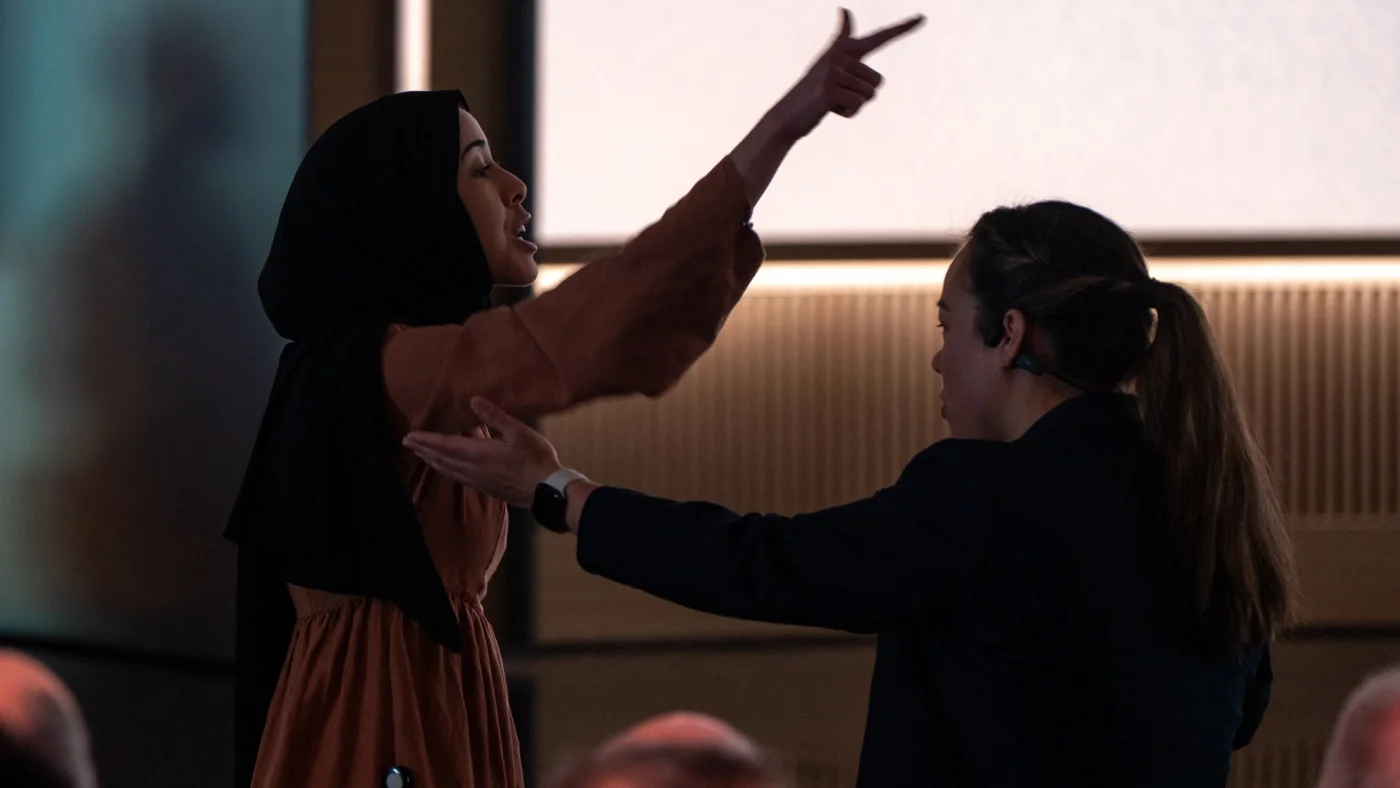Microsoft Employees Challenge Company’s Israel Ties
In early 2025, Microsoft software engineer Ibtihal Aboussad discovered that her company was providing AI infrastructure to the Israeli military, which was being used in Gaza. The revelation shocked Aboussad, who worked in Microsoft’s AI department and had been unaware of the company’s involvement with the Israeli military.

Through an initiative called Project Azure, Microsoft was providing computing services, including AI operations, to Israel’s military units such as Unit 8200 and Unit 81. These services were being used to create ‘kill lists’ in Gaza. Aboussad joined the No Azure for Apartheid campaign, created by fellow employees concerned about Microsoft’s contracts with Israel.
Employee Activism Turns to Protest
When internal efforts to address concerns failed, Aboussad and colleague Vaniya Agrawal decided to take a stand. At Microsoft’s 50th anniversary event in Redmond, Washington, they disrupted proceedings to draw attention to the company’s complicity in Gaza. Aboussad confronted AI CEO Mustafa Suleyman, saying, ‘Shame on you Mustafa! Microsoft sells AI weapons to the Israeli military.’

The protests, both inside and outside the event, drew significant attention. Both employees were subsequently fired for ‘wilful misconduct.’ The campaign, however, continues to gain momentum, with the Palestinian-led BDS movement recently adding Microsoft gaming products to their priority targets.
Broader Implications for Tech Industry
The controversy surrounding Microsoft’s involvement with the Israeli military is part of a larger debate about big tech’s role in military-industrial complexes. Google and Amazon have faced similar scrutiny over their Project Nimbus contract with Israel. Critics argue that such partnerships enable human rights violations and dehumanization through AI surveillance and monitoring.
The actions of Aboussad and Agrawal highlight the growing internal dissent within tech companies about their ethical responsibilities. As Hossam Nasr, co-founder of the No Azure for Apartheid campaign, noted, such actions make it harder for companies like Microsoft to ‘hide behind their brand recognition and pretend they are not participating in genocide.’
Conclusion
The story of these Microsoft employees turned activists shines a light on the complex ethical landscape of modern tech companies. Their courage in challenging their employer’s practices, despite personal cost, underscores the growing awareness and concern about the real-world implications of technology developed and sold by these corporate giants.


